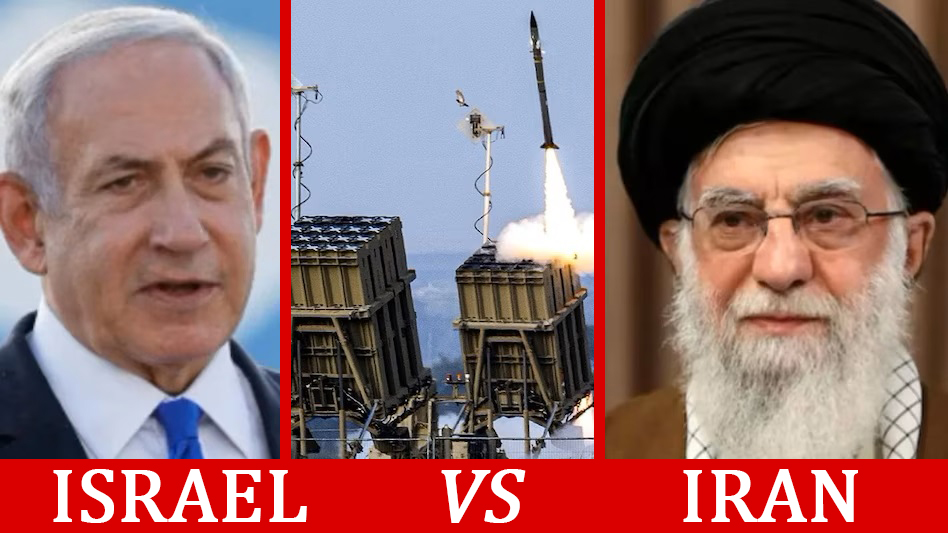Introduction
The Middle East is once again at a tipping point following Iran’s recent missile attack on Israel, which has sent shockwaves through the region and beyond. On Tuesday, alarms blared across Israel as approximately 200 missiles, including hypersonic weapons, were launched by Iran in what was described as retaliation for the killings of Iranian military leaders. This Iran attack on Israel has raised concerns about a broader Iran-Israel war, which could have far-reaching implications not just for these two nations, but for the entire world.
Iran’s Justification for the Attack
Iran’s leadership, represented by President Masoud Pezeshkian, claims that the missile strikes were a necessary response to Israel’s military actions, including ground raids in Lebanon and targeted killings of Iranian military commanders. Pezeshkian insists that Iran is “not looking for war,” but warns of “stronger responses” should Israel choose to retaliate. This rhetoric underscores the high stakes and fragile nature of the current geopolitical landscape, often drawing comparisons to World War 3 scenarios.
Israeli Response and Military Readiness
In response to the missile attack, the Israeli military vowed retaliation “at a place and time of our choosing.” After sounding the all-clear, authorities urged citizens to return to their daily lives, but the shadow of impending conflict looms large. Israel’s defense systems, particularly the Iron Dome, are on high alert, prepared to intercept any further missile threats. Earlier, the Israeli military had indicated that any ballistic missile strike from Iran was expected to be widespread, leading to public advisories to seek shelter.
The situation escalated further as Hezbollah claimed to have destroyed three Israeli tanks that advanced toward a Lebanese border village. This marked a significant development in the Israel-Hezbollah war, contributing to the deadliest day for Israeli forces in Lebanon over the past year, with eight soldiers reported killed in combat. The ongoing clashes between Israel and its Iran-backed adversaries highlight the precarious nature of regional security.
International Reactions
The international community has responded swiftly to the events unfolding in the Middle East. The United States and G7 nations have “unequivocally” condemned Iran’s missile attack on Israel, with President Joe Biden discussing potential new sanctions during calls with G7 leaders. These developments emphasize the broader implications of the conflict, as world powers seek to stabilize a volatile situation. The G7 has reiterated its commitment to finding a diplomatic solution to the conflict, indicating that while military actions are ongoing, avenues for negotiation remain on the table.
Increased Security Measures
In light of these developments, security measures have been intensified globally. For instance, the Delhi Police heightened security around the Israel Embassy in India, underscoring the worldwide ramifications of the conflict. The embassy, which has faced threats in the past, now has multi-layered security protocols in place. This reflects the heightened concerns over Iran attacks on Israel and the potential for retaliatory measures that could affect diplomatic missions worldwide.
The Humanitarian Perspective

While military maneuvers and political rhetoric dominate headlines, the humanitarian impact of this escalating conflict cannot be overlooked. Civilians in both Israel and Lebanon face daily uncertainties, with the constant threat of missile attacks forcing many to seek shelter. Reports indicate widespread fear and anxiety among civilians, illustrating the human cost of geopolitical tensions. The Israel news today reflects this growing concern, with families scrambling for safety amid the chaos.
Historical Context
The historical relationship between Iran and Israel has evolved dramatically over the decades. Once, the two nations shared a more amicable rapport, but this has drastically shifted, leading to the current state of hostilities. Understanding this background is essential to grasp the current dynamics of the Iran vs. Israel conflict. The recent missile offensive was labeled a “terrible mistake” by former Israeli Prime Minister Naftali Bennett, who argued that Israel now has its greatest opportunity in 50 years to change the face of the Middle East.
Conclusion
The recent missile attack by Iran on Israel represents a significant escalation in a long-standing conflict that shows no signs of abating. As both nations prepare for potential retaliation, the international community watches closely, hoping to avert a larger confrontation. The stakes are high, and the implications of this conflict extend beyond regional boundaries, with the potential to reshape the geopolitical landscape of the Middle East for years to come.
As the situation unfolds, it remains crucial for global leaders and organizations to pursue diplomatic avenues while addressing immediate humanitarian concerns. The world is watching, and the consequences of this conflict will resonate far beyond the borders of Israel and Iran. With tensions at an all-time high, one can only hope for a resolution that avoids further escalation into full-blown war.